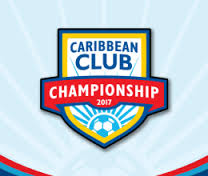January 23 – The dates and venues for the 2017 Caribbean Club Championship have been set for February – March 2017. Five groups of four teams will compete for the final tournament scheduled to be played May 13-21.
But behind this story of tournament organisation lies a political story of CONCACAF’s divide and conquer strategy to split the Caribbean and bring its potentially dominating block membership at confederation level under control.
The Club Championship, rather than being organised by the sub-regional confederation, the Caribbean Football Union (CFU), is instead organised and financed by big its brother, CONCACAF. The CFU may have come up with the structure, venues and proposed plan for its region, but it has not been trusted with the tournament organisation or the money – that has remained under the direct control of CONCACAF.
The Miami-headquartered regional body has run the last two editions of the tournament which has been played 18 times since 1997. The previous 17 competitions were run by the CFU. The competition acts as the CFU qualifier for the CONCACAF Champions League – the CFU will have one automatic qualification place and two play off places, a significant reduction from its previous three automatic places.
CONCACAF stepped in to take control in 2015 when the Caribbean was starved of money following the scandals that rocked the region, and gridlocked the CFU competition rights in particular. A look at the Caribbean Club Championship 2017 logo (pictured) shows a design with no recognition of the CFU with either its logo or name. Previously competition logos have incorporated the CFU logo as the rights holder to the event.
The continued lack of top level involvement of the CFU and its member nations reflects the continuing desire of CONCACAF’s central administration and president Victor Montagliani to secure control over the sub-region, similar to the US-backed control it has over the Central American sub-regional body (UNCAF). If that means ultimately throttling the CFU out of existence – via control off money and reduced team access to CIONCACAF’s major events – then, in their eyes, that makes them just a casualty of the war that is football politics at confederation level.
Meanwhile 20 Caribbean teams will prepare for a regional competition that is not being run by their regional governing body. While the teams battle for entry to the CONCACAF Champions League and Caribbean bragging rights, their national administrators will be battling for the future of the game in the Caribbean and – incredibly – their right to be self-determining in the face of their North American ‘superiors’.
Group Stage Venues and Groups:
Group A (Antigua Recreation Ground – St. John’s, Antigua and Barbuda) February 20 – 27
Greenbay Hoppers FC (ATG), Bequia United FC (VIN), Inter Moengo Tapoe (SUR), Racing FC (HAI)
Group B (Stade Sylvio Cator – Port-Au-Prince, Haiti) February 27 – March 6
Don Bosco FC (HAI), Cibao FC (DOM), Police FC (MSR), USR Sainte‐Rose (GLP)
Group C ( Montego Bay Sports Complex – Montego Bay, Jamaica) February 27 – March 6
Montego Bay United FC (JAM), Elite Sport Club (CAY), Grenades FC (ATG), Club Barcelona Atletico (DOM)
Group D (Ato Boldon Stadium – Port of Spain, Trinidad & Tobago) March 6 – 13
Central FC (TRI), Portmore United FC (JAM), Scholars International (CAY), SV Transvaal (SUR)
Group E (Victoria Park – Kingstown, Saint Vincent and the Grenadines) March 6 – 13
System 3 Sport Academy (VIN), Club Sportif Moulien (GLP), Flames United SC (SXM), San Juan Jabloteh FC (TRI)
The five group winners will advance to the final round, scheduled to be played from May 13-21.
Contact the writer of this story at moc.l1745072934labto1745072934ofdlr1745072934owedi1745072934sni@n1745072934osloh1745072934cin.l1745072934uap1745072934

